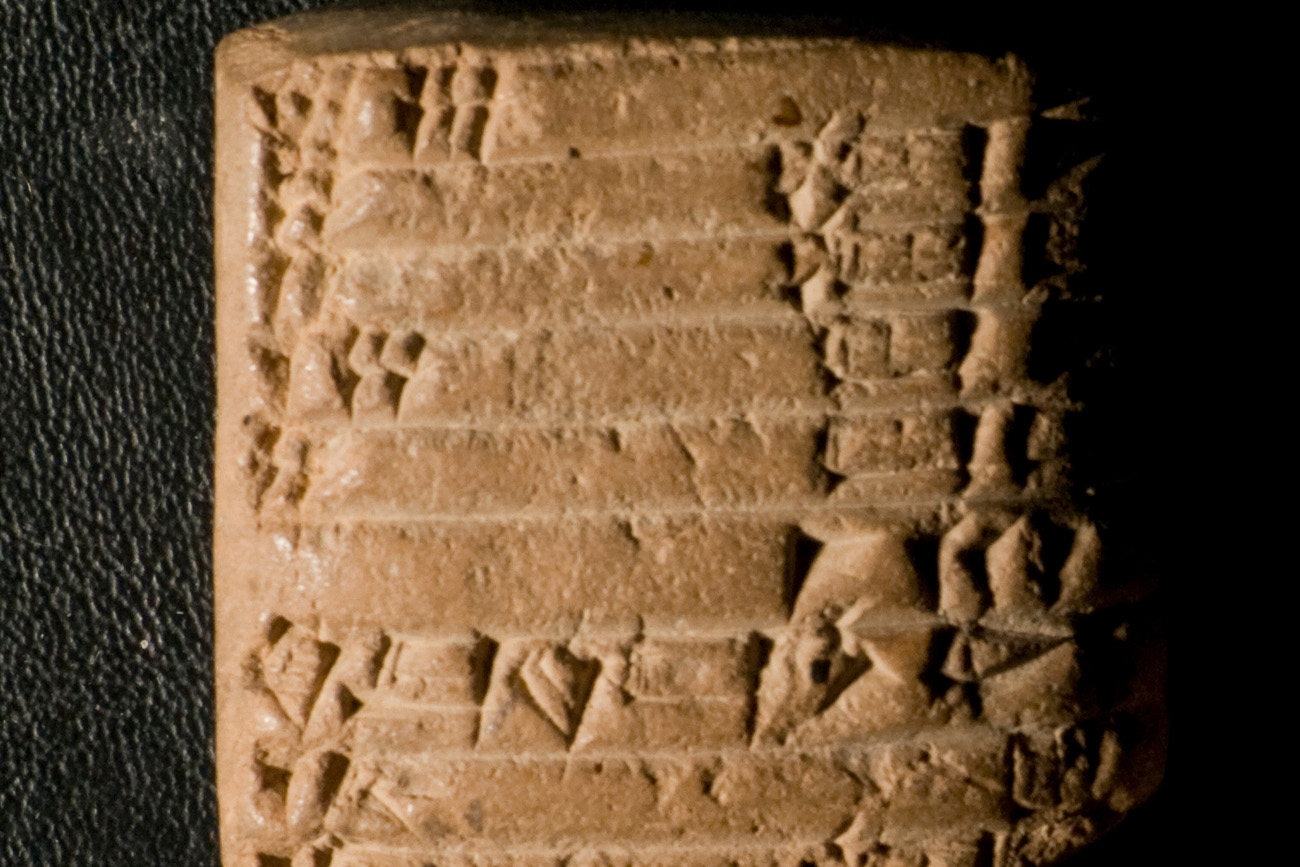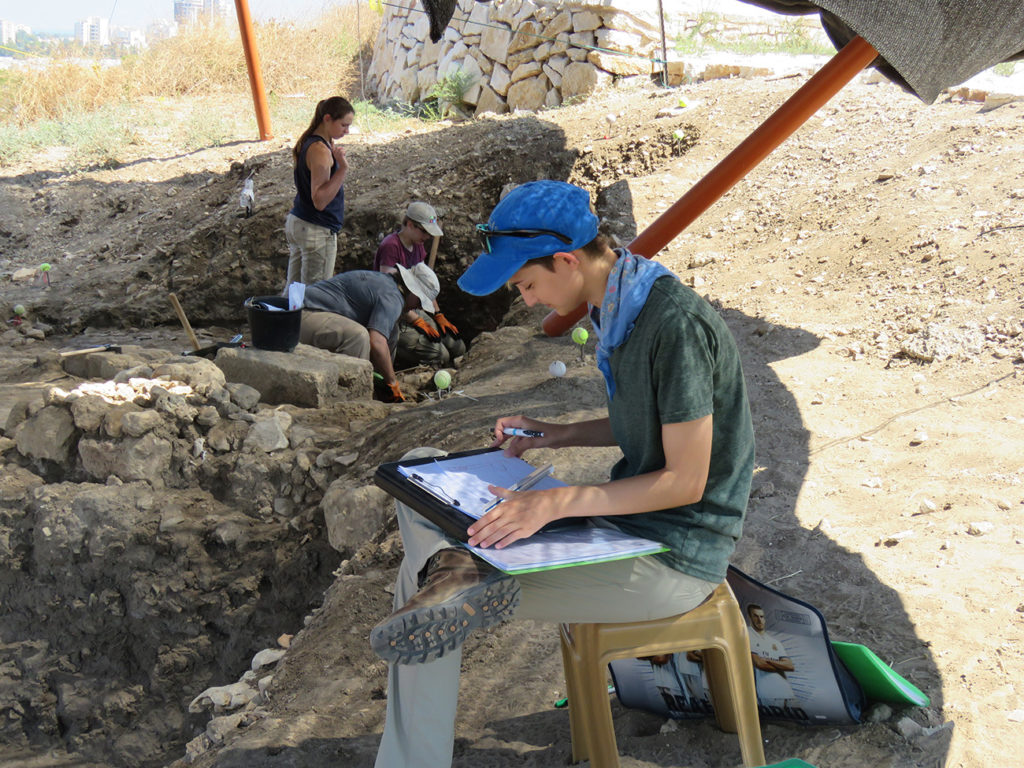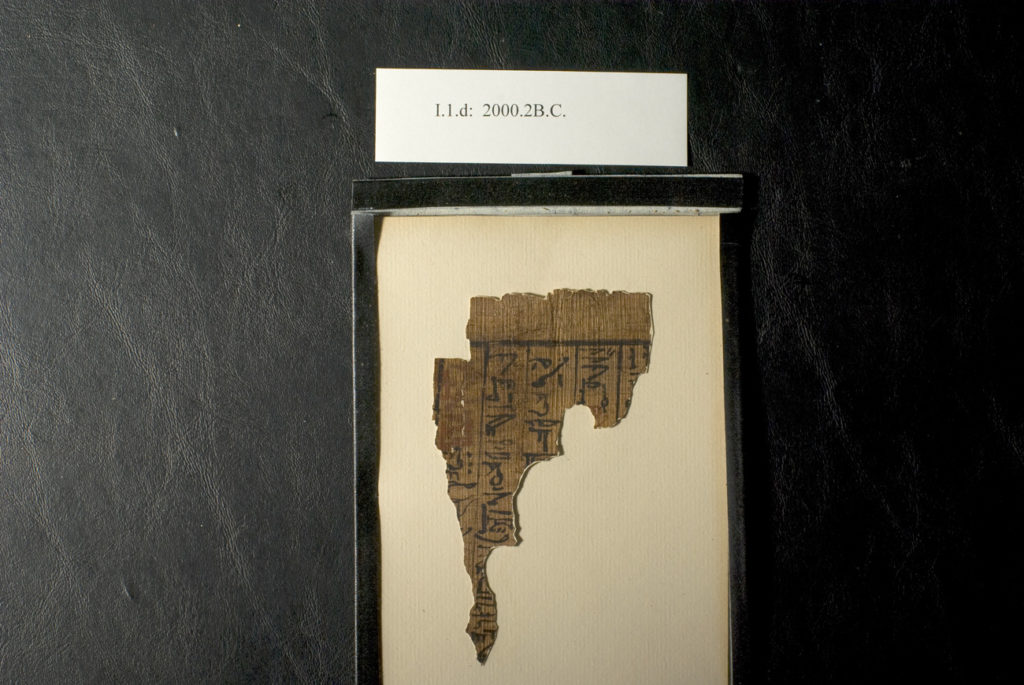
Brandi Pohlmeier
Department Assistant
History, Culture & Society
What is a history degree?
About
When we understand the past, we can plan for a better future. As a history major, you’ll explore and critically analyze important events, people, and outcomes across time periods and cultures.
Fun, exciting, and interesting, a history degree teaches you crucial real-world skills like research, data analysis, and effective oral and written communication. But most important, as a history major, you’ll begin to better understand yourself and your place in the world.
Why study history at Baker University?
As the oldest college in Kansas, Baker boasts its own fascinating past, making it the perfect place to be a history major. In addition to the study of European, non-Western, and American history, you can expect to analyze and interpret the legacy and contributions of traditionally underrepresented cultures and societies. Through directed research, oral history analysis, cultural studies, museum and archival fieldwork, and internships, you’ll engage with history from multiple perspectives.
Whether it’s reenacting famous battles on campus to understand military strategies; re-creating segregated public facilities to understand the consequences of segregation; or studying abroad to learn and become familiar with other languages, cultures, and history, our students have a multitude of experiential learning opportunities to choose from. Many of our history majors go on to earn graduate degrees, either from law school or more in-depth historical programs.

Jobs for History Majors
Studying history opens the door to a variety of career opportunities:
- Archivist
- Historian
- Museum curator
- History teacher
- Lawyer
- Researcher
- Business consultant
- Writer
History Course Descriptions
HI 127 – History of the United States to 1877 3 hrs.
This course surveys the history of colonial America and the United States to the end of the Grant administration, paying particular attention to the socioeconomic, ethnic, cultural, political, and ideological diversity of the American people.
HI 128 – History of the United States since 1877 3 hrs.
This course surveys the history of the United States from the Hayes administration to the present, paying particular attention to the socioeconomic, ethnic, cultural, political, and ideological diversity of the American people.
HI 140 – World Civilizations I: From Hearth to Empire, Prehistory to 300 BCE 3 hrs.
A comparative study of world history from the migratory communities of the Neolithic Era to the development of regional empires, this course will emphasize significant technological developments and their impact on ancient civilizations. What civilization means and what role technology played in the creation of the world’s first major regional and cultural zones are the major themes of the course. Note: HI 140 is not a prerequisite for HI 141, 142, or 143. These four introductory courses are equivalent in level and satisfy the same major requirements.
HI 141 – World Civilizations II: The Development of Transcontinental Exchange, 300 BCE-1500 CE 3 hrs.
Continuing with the role of technology in human history, this course focuses on the development of systems of contact and exchange between the world’s major regional civilizations. Of primary importance are the Silk Road and the Indian Ocean Trade Network, both of which contributed significantly to the spread and exchange of goods, technologies, and cultural concepts. This course will close with the reconnection of Europe to this system. (See note after HI 140.)
HI 142 – World Civilizations III: Western Imperialism and Reaction, 1500-1870 3 hrs.
This course addresses the violent and meaningful expansion of Europeans throughout the globe and the responses of non-Europeans to that expansion. From Columbus to British imperial supremacy and the era of New Imperialism, the impact of European expansion will be assessed from a global perspective. (See note after HI 140.)
HI 143 – World Civilizations IV: The Rise of Globalism, 1870 to the Present 3 hrs.
From great strides in medical science to the Nazi Reich’s industry of death to the World Wide Web, this course examines the steady application of technology to the essential spheres of human existence. Of particular interest is the relationship between technology and human culture. Relying on comparative methods of study, students will examine the significant achievements of the world’s most recent history to discover how societies have responded and developed as a result of an ever-expanding world system. (See note after HI 140.)
HI 226 – Laboratory Course in Historical Method 3 hrs.
This course provides practical experience in using the techniques of historical research and writing a research paper based upon primary sources. Prerequisite: Three credit hours of history.
HI 232 – History of Mexico 3 hrs.
This course surveys the history of Mexico from its first peoples through the 20th century. The course will offer various interpretations of the major themes and developments in Mexican history. A primary goal of the course is to examine Mexico from the perspective of the Mexican people, paying particular attention to their contributions, both past and present, toward shaping Mexico throughout its history.
HI 261 – History of the American West: A Legacy of Conquest and Resistance 3 hrs.
This course will examine the history of the Trans-Mississippi West, focusing on the process of conquest, settlement, and resistance which defined this region. Students will examine the human-dominated ecosystems of the many Native American civilizations present in the region before the coming of Euro-Americans, the vanquishing of those groups by the Euro-American aggressors, the acts of resistance to this aggression during this period, and the impact of this conquest on natural resources within this region. Prerequisite: HI 127 or 128.
HI 297 – Riots, Rebellion, and Revolts: A History of Social Conflict in the Eastern Hemisphere 3 hrs.
This course is part of a two-course sequence addressing the history of social conflict. The sequence is also designed to bridge and promote the mission of the department by emphasizing the issues relating to social justice, crime and punishment, the role of religion, the role of technology in human society, and the rhetorical systems of power and gender. As an advanced survey, the course objectives emphasize the development of learning-centered engagement through research and discussion.
HI 298 – Riots, Rebellion, and Revolts: A History of Social Conflict in the Western Hemisphere 3 hrs.
This course is part of a two-course sequence addressing the history of social conflict. Organized as a series of cases studies, we will examine that various factors that have produced social conflict from antiquity to the modern age. Several factors will be examined, including social disproportion, economic disparity, lines of communication, religious or philosophical belief, technology, and the environment. Additionally, we will examine the role of violence in social conflict. Was it a necessary element? As Nigerian author Chinua Achebe wrote, “When two elephants fight, it is the grass that suffers.”
HI 326 – Eastern European/Soviet History and Politics 3 hrs.
Economic, political, and social changes in the U.S.S.R. and its successor states are studied in this course. Other countries in Eastern Europe are examined in comparison. (Cross-listed as PS 326.)
HI 328 – History of Christianity 3 hrs.
This course on the history of Christianity will examine its early development until the fall of Constantinople in 1453. Students will analyze the history and traditions of Christianity and will have the option to further explore issues such as: the divinity of Jesus, heresy, gender and sexuality in Christianity, and early theologians. This course will have several required readings where students will engage with the texts written by early Christians. (Cross-listed as RE 328.)
HI 329 – Modern Christianity 3 hrs.
The purpose of this course is to examine the Protestant Reformation, the response by the Catholic Church, and its spread throughout the world. As a result, this class will focus on several major Christian thinkers and theologians as well as various historical events. The class will end with a discussion of Christianity in the Americas and how it has developed and changed as a result of its new context. This will include the creation of new movements such as Mormonism, the Seventh Day Adventist Church, and the Jehovah’s Witnesses. (Cross-listed as RE 329.)
HI 333 – American Social and Intellectual History 3 hrs.
This course explores shifts and transformations within American society, the impact of ideas, and the religious experience. Special attention will be given to reform movements and the nature of class conflict.
HI 334 – American Labor History 3 hrs.
This course deals with the impact of transportation, agriculture, labor, industry, and technology on American history. The economic effects of war, regional integration, national policy, and international affairs are also explored.
HI 335 – American Gender and Minority Issues 3 hrs.
This course focuses on experiences of women and minority groups as they interact within their distinctive groups as well as with one another, men, and various formal and informal social institutions in American history. (Cross-listed as PS 335.)
HI 344 – Outside of the Classroom: Inquiries in Public History 3 hrs.
The purpose of this course is to examine the nature of public history, its impact on the community, and the work of professionally trained historians who are employed in public history in local and regional communities through inquiry-based learning experiences at public institutions.
HI 346 – History of Kansas: Its Peoples and Cultures 3 hrs.
This course is formulated as a reading and discussion seminar, focusing on the various groups who have resided in Kansas and their impact on the region and its history. Students will examine major themes, events, and trends of the Kansas past through primary and secondary sources. These sources offer a multitude of interpretations that shed light on the contributions and views of diverse Kansans over time. The class will analyze both their actions and the insights afforded by numerous historians to create a meaningful reconstruction of the past. Prerequisite: One history course.
HI 348 – Social and Cultural Revolutions in the 1960s 3 hrs.
This course will examine the complex history of the United States preceding, during, and following the 1960s. Through readings, music, and film, the class will discuss the many events and movements that inflamed the passions of the sixties and seek to understand their legacy today, including a focus on the social, political, and cultural forces at work during this period. Prerequisite: One history course.
HI 349 – Mexico: Ancients, Warriors, and Revolutionaries 3 hrs.
This course examines the history of Mexico from its first peoples through the Mexican Revolution. The course will offer various interpretations of the major themes and developments during this period in Mexican history. Due to the complexity of Mexican history, a primary objective is to focus on Mexico from its original inhabitants through nationhood rather than survey the entire history of the country. Mexico is not a singular homogenous entity: rather, there exist many peoples who come with various ideas, values, and belief systems. The course will pay particular attention to the cultural contributions of the Mexican people of the past and their part in shaping Mexico.
HI 351 – African Civilizations to 1870 3 hrs.
Arranged as a series of case studies, this course will explore several of Africa’s important civilizations before 1800 CE. Students will examine the civilizations of ancient Nubia, the empires of Sudan, ancient Axum and Ethiopia, the metropolis of Benin, and the migration of the Bantu peoples. Through careful consideration of several major aspects of each civilization (poetry, art forms, political institutions, and social organization), students will attempt to understand the common threads and enormous diversity of Africa’s civilizations.
HI 355 – Mesopotamian History and Religion 3 hrs.
The purpose of this course is twofold: 1) for students to examine the history of Mesopotamia, and 2) to examine the religious development that resulted from that history. The course will focus on various different religious texts and mythologies that students will critically analyze. Since the course will cover 2000 years of history, only the most important and religiously relevant issues will be highlighted. (Cross-listed as RE 355.)
HI 362 – Social Conquest of the American West 3 hrs.
This course will examine the history of the Trans-Mississippi West, focusing on the process of conquest, settlement, and resistance which defined this region and its peoples.
HI 363 – Europe in the Early Middle Ages, 300-1000 CE 3 hrs.
This course will examine the history of Europe and the Mediterranean Basin from the breakup of the Roman Empire to the transition to the High Middle Ages. This course will examine the political, economic, social, and cultural development of the three successor civilizations of classical Greece and Rome: Byzantium, Islam, and Western Christendom, with particular emphasis on the latter. This course will examine how these civilizations arose and interacted in both peace and war. Among the many possible historical problems available, this course will investigate the following: the end of the ancient world; the expansion of Christianity; the era of migrations (the Völkerwanderung); the emergence of Germanic successor kingdoms; the Carolingian Empire; the Vikings; the division between northern, southern, and eastern Europe; the Eastern Roman (Byzantine) Empire and its civilization; and the rise of Islam and its civilization.
HI 364 – American Indian History 3 hrs.
This course will introduce students to the field of American Indian history, some of the many communities and cultures of Native North America, and some of the major problems in the field. A solid grounding in U.S. history is a prerequisite for this class.
HI 365 – The Mediterranean in the Middle Ages, 1000-1500 CE 3 hrs.
This course examines the principal historical questions arising from the Crusading era and its impact on the Mediterranean world, particularly with respect to the Commercial Revolution (ca. 1000-1500 ce). Among the topics considered will be the Crusades themselves (definitions, origins, sequence, and consequences), and how they affected the Byzantine Empire, the Islamic States of Western Asia and North Africa, and European society. (Cross-listed as RE 365.
HI 367 – Europe in the Middle Ages, 1000-1500 CE 3 hrs.
This course explores the principal historical questions concerning the growth of European civilization during the High and Late Middle Ages, the formative period during which Western Civilization took shape. The transition from the Early Medieval to High Medieval Era was characterized by the dramatic acceleration of all aspects of European economy and society. Among the topics considered will be the emergence of feudalism and manorialism, development of the institution of the Catholic Church and the Papacy, the Church’s interactions with secular powers, the development of cities and new networks of trade, the crises of the later Middle Ages, and the transition into the Early Modern world.
HI 371 – Europe in the Early Modern Era, 1450-1688 3 hrs.
This course is devoted to the history of Europe from 1450 to 1688: that is, the period from the spread of Renaissance culture throughout Europe to the Glorious Revolution in England. Within this era we will explore the Renaissance, Northern Humanism, the Reformation, European exploration, the Scientific Revolution, the religious wars of the 17th century, and the growth of constitutional government. Lecture topics will include significant developments in the realm of politics, society, and culture, with special lectures on military, religious, and women’s history. Historical developments in this period were dramatic, even radical. The course then will stress those changes and how they affected both the Europeans who shaped them and who were affected by them.
HI 373 – From Kingdom to Nation State: European History, 1689-1850 3 hrs.
This course focuses on events from 1689 to 1850, the era of the great political, economic, and intellectual revolutions that transformed Europe from a continent dominated by monarchs to one governed through territorial nation states. The course will examine the economic and intellectual developments that fueled the reexamination of monarchy and absolute authority, and how both were challenged through collective political bodies and theories focusing on constitutionalism. Points of focus will include the Louis XIV and the French state, English constitutionalism, the Industrial Revolution, the Enlightenment, the French Revolution, Napoleon, and the Revolutions of 1848. The course will also examine the many revolutionary and often violent developments that define modern Western Civilization.
HI 381 – The Era of Global War: European History in a Global Context, 1870-1947 3 hrs.
The Era of Global War covers world history from late 19th century to 1945, especially the era encompassing the First and Second World Wars. Students will gain historical perspective on global events and key changes that shaped the first half of the 20th century. Topics include major historical events and global conflicts, including New Imperialism, the roles of science and technology, the Russian Revolution, and important ideologies such as Communism, Fascism, Liberalism, and Nationalism.
HI 405 – The Dynasties of Ancient Egypt 3 hrs.
Focused on the banks of the Nile, at what would become the crossroads between the Fertile Crescent and the African continent, the dynasties of Egypt established a civilization that remains an enduring source of fascination, wonderment, and controversy. By carefully examining primary source materials and modern scholarship, students can take a first deep plunge into a controversial and spectacular sea in history. Prerequisite: Six credit hours of history courses. (Cross-listed as RE 405.)
HI 433 – The Golden Age of Ancient Greece 3 hrs.
This course is devoted to understanding the history of the Greek civilization from the Bronze Age to 336 BCE, an era dominated by the city-state Athens, whose imperial aspirations and literary achievements continue to inspire cultural emulation and experimentation. Various factors and forces at work during this era, and an exploration of their relationships in the creation of a unique civilization, will be examined. Prerequisite: Six credit hours of history courses.
HI 436 – Senior Thesis in History 3 hrs.
Each student shall select a topic that relates to his or her interest and that holds promise for original research and analysis. Ensuing research will require the examination, analysis, and appropriate synthesis of both primary and secondary resources. The study will raise questions of theory and value from which to make predictive and educated assumptions appropriate to the research topic. This research and evaluation exercise will culminate with a seminar paper, formal oral defense, and peer and instructor evaluation. Prerequisite: 21 credit hours of history, including HI 226.
HI 437 – Alexander’s Legacy 3 hrs.
The conquests of Alexander the Great in Africa and Asia allowed for the dissemination of Greek civilization, but the legacy of Alexander was more than the spread of Greek culture. Where the Greeks settled, their culture mixed with the civilizations of the subject peoples, a process termed the “Hellenistic Synthesis.” Understanding how Alexander’s conquests linked the Mediterranean to central Asia and opened the door to the first “world system” in history is the focus of this course. Prerequisite: Six credit hours of history courses.
HI 441 – Rome from Republic to Empire 3 hrs.
From the Punic Wars to the Military Anarchy, this course will examine the major political, economic, and social developments from the collapse of the Republic to the crisis of the Principate. Particular emphasis will be placed on the development of Roman society and technology as factors in the dissolution of imperial authority. Prerequisite: Six credit hours of history courses, including HI 226.
HI 443 – The World of Late Antiquity 3 hrs.
This course covers the period from the emergence of the Roman Dominate to the devastation of the Carolingian and Byzantine Empires in the ninth and tenth centuries CE, an era traditionally titled “The Dark Ages” or “The Early Middle Ages.” Since the 1970s, however, a growing number of scholars have made the case for treating this era as a distinct and vital historical unity: The Late Antique Era. Subsequently, the major theme of this course will be understanding and evaluating the traditional and post-1970 schools of thought. Prerequisite: Six credit hours of history courses.
Scholarships
History Majors
The Department of History, Culture, and Society gives these awards with financial prizes to be applied to the following year’s tuition:
- Mildred Hunt Riddle Departmental Recognition Scholarship for Social Sciences
- Mildred Hunt Riddle Departmental Recognition Scholarship for Philosophy and Religion
- Mildred Hunt Riddle Departmental Recognition Scholarship for History
- Dorothy J. and James F. Hilgenberg Scholarship
- Gilbert and Martha Jane Lewis Ferguson Scholarship
- Brune Memorial Scholarship
- Paul Dick Scholarship
- Warren E. and Marion Rhodes DeSpain Scholarship in Church Leadership
- Thomas G. Manson and Frances B. Manson Scholarship
Meet the Faculty

Dr. Ashley Garcia
Assistant Professor of History
B.A. University of South Florida, M.A. New School for Social Research, Ph.D. University of Texas at Austin
Expertise: utopianism, American reform and social movements, 19th century U.S. history
Office: Parmenter Hall 18

John Richards
Associate Professor of History, Walter Bailey Chair of Humanities
B.A., M.A. University of Kansas; ABD Brown University
Expertise: dynastic Egypt, ancient Greece and Rome, early medieval Europe
Office: Parmenter Hall 21

Dr. Leonard Ortiz
Emeritus Associate Professor of History
B.A. Santa Clara University, M.A. Stanford University, Ph.D. University of Kansas
Expertise: American West, Native American and 20th century U.S. history


